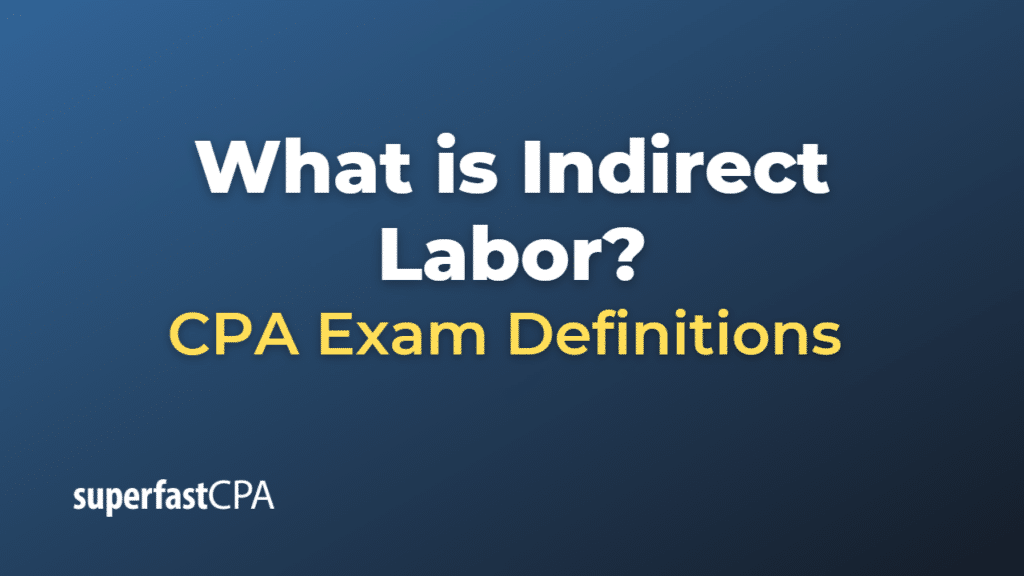Indirect Labor
Indirect labor refers to the labor costs associated with employees who support the production process but aren’t directly involved in the production of goods or services. These employees do not work directly on a product or service but perform tasks that are necessary for the overall operation of a production facility or service delivery.
Some examples of indirect labor include:
- Maintenance staff: These employees maintain and repair the equipment and facilities used in production.
- Quality control staff: These employees inspect products to ensure they meet quality standards but do not directly contribute to the creation of the product.
- Material handlers: Employees who move materials around the plant or warehouse but are not directly involved in the production process.
- Supervisory staff: Managers and supervisors who oversee production workers are also considered indirect labor, as their work is not directly tied to a specific product or service.
These labor costs are considered indirect costs because they cannot be traced back directly to a specific product or service. Instead, they are often allocated to all products or services using some method of cost allocation.
Understanding the cost of indirect labor is essential for cost accounting and for managerial decision-making, including pricing products, planning and budgeting, and assessing efficiency.
Example of Indirect Labor
Let’s use an example of a car manufacturing company.
- Direct Labor: These are the employees directly involved in the production of the cars. The assembly line workers who install the engines, fit the car interiors, paint the vehicles, etc., are considered direct labor. Their work can be directly tied to each car produced.
- Indirect Labor: These are the employees who support the production process but aren’t directly involved in assembling the cars.
- Maintenance Staff: These employees ensure that the assembly line machinery is kept in good working order. They may fix breakdowns or perform regular preventative maintenance. Their work is crucial for the production process, but it isn’t tied to a specific car.
- Quality Control Inspectors: These employees check the cars for defects and ensure they meet the company’s quality standards. They don’t directly contribute to the assembly of any specific car but their work supports the overall production process.
- Material Handlers: These employees manage the inventory of parts and materials and ensure the assembly line workers have what they need. They support the production process but their labor can’t be traced to a specific car.
- Supervisors: The assembly line supervisors manage the workers and oversee the production process. They are crucial for the smooth operation of the plant but their work can’t be attributed to a specific car.
For cost accounting purposes, the company would need to allocate these indirect labor costs to each car produced. For example, it might calculate an overhead rate based on direct labor hours and then apply this rate to the direct labor hours spent on each car to allocate the indirect labor costs. This helps determine the total cost of manufacturing each car, which is crucial for setting prices and analyzing profitability.













